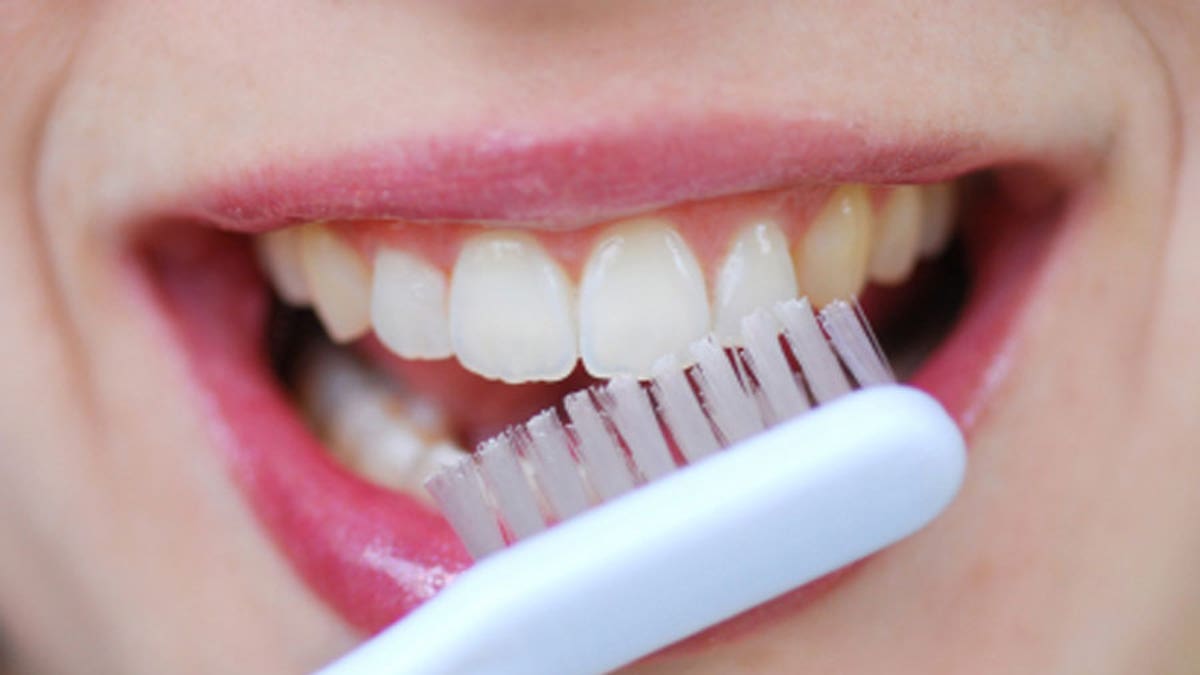
(iStock)
Just as nobody likes a whiner, nobody likes bad breath. It's a powerful way to make a bad first impression. But the good news is that there are relatively simple ways to take care of halitosis.
Much of the time, bad breath comes from the gases produced by bacteria accumulating in the mouth, on the gums, teeth and tongue, said Dr. Jeffrey Spiegel, an otolaryngologist in Boston. Many of these gases contain sulfur, which gives them their stinky smell.
[sidebar]
A simple and obvious way to treat this is to brush your teeth and floss. Tongue scrapers can also go a long way toward removing bacteria that cake onto the back of your tongue, Spiegel told LiveScience.
Here are five other, more surprising ways to fight bad breath:
1. Visit your dentist
If you have lingering bad breath, it's not a bad idea to visit your dentist, said Chetan Kaher, a dentist in London. Once certain types of bacteria set up shop on your teeth, they can form a plague that has to be physically removed by professionals, Kaher said. [7 Embarrassing Health Problems]
These plagues can break down teeth, not only causing cavities but also creating bad breath odors, he said. Halitosis can also be caused by cavities themselves and rotten teeth, so it's important to rule out these possibilities by visiting the dentist, Spiegel said.
2. Check your nose
Another leading cause of bad breath: smelly secretions from your nasal passages. Sinus infections, or the presence of bacteria in your nose and sinus cavities, may also give off noxious odors.
Using a saline nasal wash can help alleviate this problem, Spiegel said. But it the problem continues, it's a good idea to see an ear, nose and throat specialist, he added.
3. Tonsil stones?
The tonsils – which are globs of lymph tissue in the back of the throat -- aren't exactly smooth and round like gumballs, Kaher said. "Instead, they look like prunes, with crevices where bacteria can accumulate."
Occasionally, if enough microbes and debris get caught, they can form tonsil stones (or tonsilloliths). Both Kaher and Spiegel said that these can be quite smelly, and can definitely contribute to halitosis.
Tonsil stones can be removed using a device called Waterpik, which squirts pressurized water onto the tonsils. But if tonsils are large enough, and are constantly accumulating stones, they may need to be removed, Spiegel said.
"Sometimes we even have to remove people's tonsils because their breath was that bad," Spiegel said.
4. Watch your diet
Foods like garlic and onions can cause bad breath, but not just because their remnants accumulate in your mouth. In the case of garlic, for example, chemicals from the food are taken up by blood cells and expelled through your lungs, Spiegel said.
Thus, your actual breath smells, and not just your mouth. In that case, there's "nothing you can do except wait it out, mask it with breath mints or mouthwash, or avoid the food," he said.
5. Check your stomach, see the doctor
If none of the above causes your bad breath, or if bad breath is a persistent problem, it's a good idea to see your doctor, Spiegel said. In some cases, stomach problems can also cause bad breath.
The main way the stomach can cause bad breath is through acid reflux, a condition in which acid and other contents of your stomach leak up out of the organ, into the esophagus. These can be treated with antacids and other medications, Spiegel said.
Copyright 2013 LiveScience, a TechMediaNetwork company. All rights reserved. This material may not be published, broadcast, rewritten or redistributed.








































